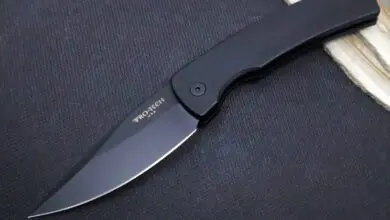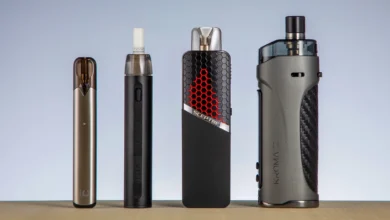The Ultimate Guide to the Different Types of Fire Extinguishers
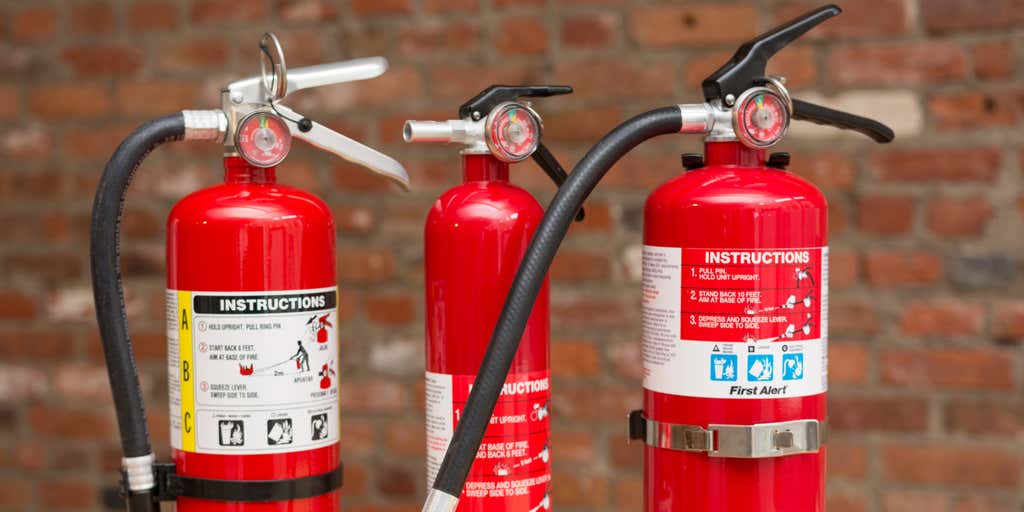
Types of Fire Extinguishers
Ever since human civilization began, there has been the need to put out fires.
The invention of fire extinguishers in 1866 is one of the most important inventions in history.
Fire extinguishers are one of the most crucial tools for fighting fires and saving lives.
Here you will find a list of all the different types of fire extinguishers. We will also share some additional information about the different types and how to use them.
ABC: The three types of ABC extinguishers are: powder, CO2, and wet chemical.
Powder fire extinguishers work by smothering the fire with a thick white powder that adheres to it and forms a protective layer which prevents oxygen from reaching the fuel source.
CO2 is used in restaurants, bars, and other businesses where there is an open flame present continuously.
Wet chemical fire extinguishers work by using water mixed with either potassium or sodium bicarbonate (baking soda) to cool off an area that has been ignited allowing firefighters access to put out the flames while minimizing damage to surrounding property or environment
A dry chemical fire extinguisher is typically the most common type, but it may not be ideal for all situations. It can have a lower pressure than water or an AFFF foam, so it may not be able to put out small fires as quickly.
A water fire extinguisher is usually most appropriate for putting out fires where there is a lot of combustible material present like paper or wood.
An AFFF foam fire extinguisher is best for fires involving electrical equipment or appliances like computers and televisions because it will coat the equipment and isolate the electrical current to stop the fire from spreading.
What is a powder fire extinguisher?
A powder fire extinguisher is a type of fire extinguisher that contains a dry chemical and is released as a powder. It is used on Class A, B and C fires.
What is a Carbon Dioxide Fire Extinguisher?
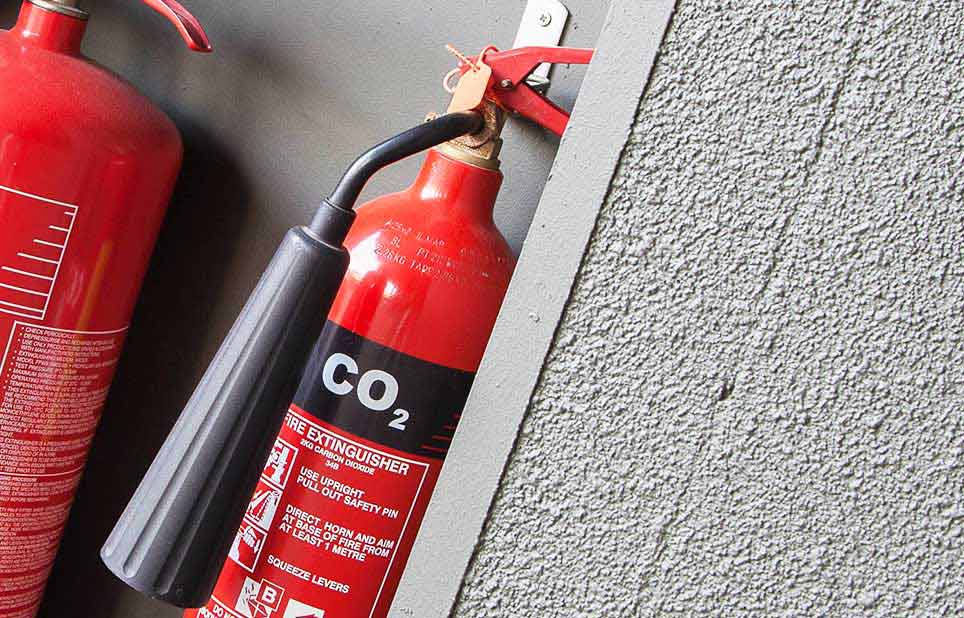
CO2 fire extinguishers are non-conductive, meaning that they will not conduct electricity, which makes them preferable for certain industrial settings.
A CO2 fire extinguisher is a type of fire extinguisher which uses the cooling power of CO2 to extinguish fires. CO2 fire extinguishers are non-conductive, meaning that they will not conduct electricity, which makes them preferable for certain industrial settings.
Dry Chemical vs Wet Chemical Fire Extinguishers
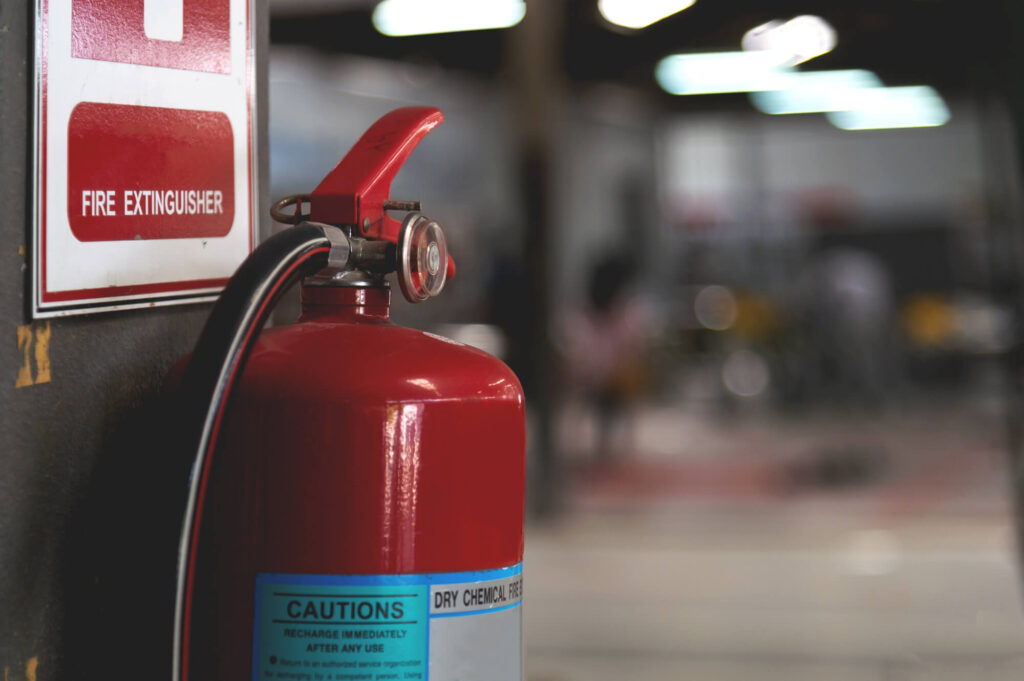
Dry chemical extinguishers are made of metal, plastic, or fiberglass. They are filled with a dry powder-like substance that is released when the pressure valve is activated. When this substance comes in contact with fire or heat, it disrupts the chemical reaction of the flame by either smothering it or turning into a solid that prevents further burning. They work on most types of fires including grease fires.
Wet chemical extinguishers are also called ABC (ATMOSPHERIC PRESSURE WET CHEMICAL EXTINGUISHERS). These fire extinguishers work on all types of fire and they use water as their base liquid.
It is important to know the difference between these two types of fire extinguishers since both can be helpful depending on what type of situation you
How Do You Refill a Fire Extinguisher?
A fire extinguisher is a device that can be used to put out fires. It works by releasing a fire-fighting agent, commonly called a “chemical agent” or “fire suppressant.”
There are two main types of fire extinguishers: water and foam. Each type has different limitations and offers its own specific advantages. So, which one should you use?
Water fire extinguishers work well on fuel fires and electrical fires. However, they don’t work well on classes B or C fires that involve combustible metals, such as magnesium or sodium. And if the water seeps into a wood-based material it can actually cause the wood to burn faster.
How to Choose the Right Fire Extinguisher for Your Home
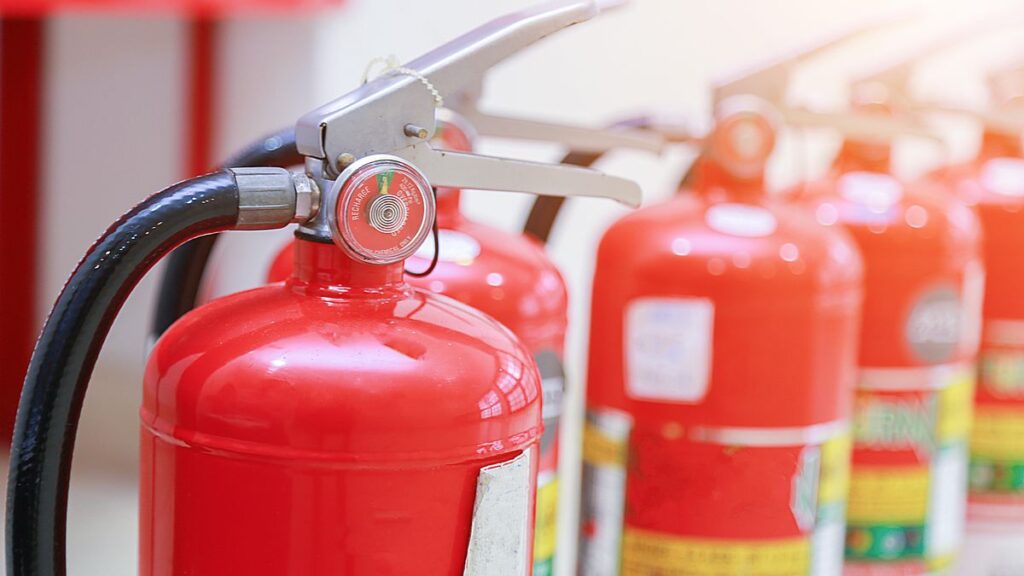
The best way to choose a fire extinguisher is by considering the type of fire you are most likely to encounter.
-Class A fires involve ordinary combustibles such as cloth, paper, wood, and trash.
-Class B fires involve flammable or combustible liquids such as gasoline, kerosene, paint thinner, and oil.
-Class C fires involve energized electrical equipment such as computers or appliances.
-Class D fires involve metals that react with air such as magnesium and titanium.
What Size Fire Extinguisher do You Need?
The size of a fire extinguisher is determined by the type of hazard it would be used to put out. Fires can range in size from small cooking fires to huge forest fires, and there are different types of fire extinguishers that are designed to work effectively on the various sizes of fires.
How to Store Expired or Damaged Fire Extinguishers Safely Away from Children and Pets
Storing fire extinguishers in residential areas presents risks of accidental discharge, damage to stored item, and injury. The following are some potential alternatives for storage of fire extinguishers.
-Hook the fire extinguisher on a wall or door with a carabiner.
-Put them on top of a cabinet or counter at the top of the kitchen island.
-Place them on their bottom with wheels against a wall.
Keep Your Home Safe by Having an Approved & Inspected Commercial Grade Safety System Installed Today!
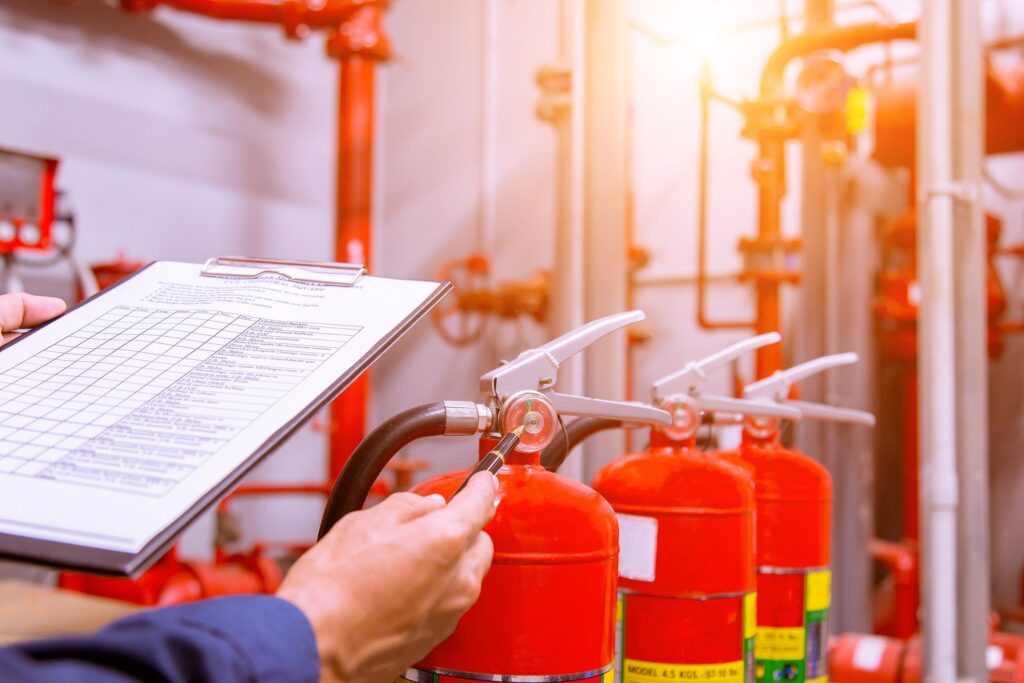
Keeping your home safe is one of the most important things that you can do. Whether you are a homeowner or tenant, you should always have an approved and inspected commercial grade safety system installed to help your family stay safe in any situation.
The installation process for this type of system is much easier to manage than other types. You don’t need any permits or permission, and there is no need for wiring either. With a commercial grade safety system, you will have the peace of mind that comes with knowing that your family is safe.
Fire extinguisher is one of those tools that you need to have wherever you live. You can get yours from AZ Parts Master.
With all these great benefits, it’s easy to see why commercial graded safety systems are so popular today. Many people feel more at ease knowing they have one installed in their home or office building because it provides them with just that – peace of mind!


